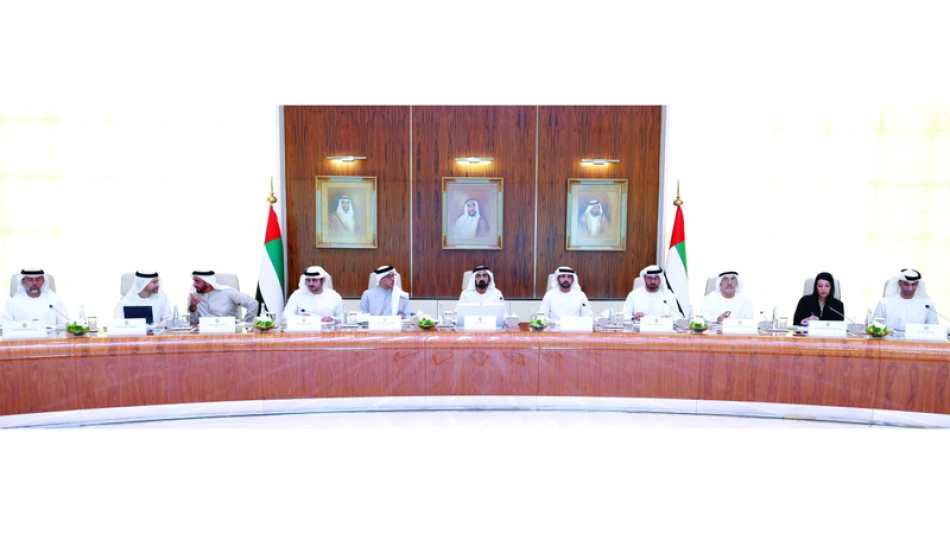
Dubai Unveils Ambitious 2026 Budget, Totaling AED 92.4 Billion, Under the Leadership of Mohammed bin Rashid
The UAE Cabinet approved the country's largest-ever federal budget for 2026, worth 92.4 billion dirhams ($25.2 billion) in both revenues and expenditures. The announcement came as Sheikh Mohammed bin Rashid Al Maktoum revealed that the UAE's foreign investment reserves have crossed the 1 trillion dirham mark, growing 9% year-over-year and cementing the country's position as the top Arab investor globally.
Sheikh Mohammed, who serves as UAE Vice President and Prime Minister, chaired the Cabinet meeting at Qasr Al Watan in Abu Dhabi. The 2026 budget represents a 29% increase compared to 2025, marking the highest federal spending plan since the UAE's formation in 1971.
The budget breakdown shows clear priorities: 34.6 billion dirhams (37%) goes to social development and pensions, while government affairs receive 27.1 billion dirhams (29%). Financial investments get 15.4 billion dirhams (17%), federal expenses take 12.7 billion dirhams (14%), and infrastructure receives 2.6 billion dirhams (3%).
But the budget is just one part of a broader economic success story. The UAE's outbound foreign direct investment reached 86 billion dirhams in 2024, up 4.8% from 2023. The country now ranks among the world's top 20 sources of foreign investment and leads the Arab world with 38.4% of all regional outbound investment flows.
Trade numbers tell an equally impressive story. Non-oil trade between the UAE and target countries jumped from 469.3 billion dirhams in 2019 to 952.6 billion dirhams in 2024 - a 103% increase. Exports alone surged 247% over the same period, rising from 40.1 billion to 139.3 billion dirhams.
These gains reflect the UAE's strategic push into comprehensive economic partnerships with countries worldwide. The deals have opened new markets for Emirati products and services while strengthening the country's role as a regional and global trade hub.
The Cabinet also established a new federal financial support program that will receive annual budget allocations starting in 2026. This program aims to ensure long-term financial sustainability for federal institutions and fund development projects.
Beyond economics, the government addressed environmental concerns by approving a national guide for evaluating groundwater resources. The guide supports the UAE's water security strategy and helps preserve natural resources for future generations by encouraging alternative water sources for agriculture and industry.
The Cabinet also released a transparency report on greenhouse gas emissions, meeting requirements under the Paris Climate Agreement. The report tracks the UAE's progress on nationally determined climate contributions and outlines mitigation and adaptation efforts across all sectors.
For investors and regional watchers, these numbers signal the UAE's continued economic diversification away from oil dependency. The balanced budget approach, combined with aggressive outbound investment and trade expansion, positions the country as a stable financial center in an often volatile region.
The restructuring of the Health Council and National Public Health Committee, both now led by Health Minister Ahmed bin Ali Al Sayegh, suggests ongoing efforts to strengthen institutional frameworks as the economy grows.
Sheikh Mohammed summed up the achievements in characteristic style: "Our budgets are balanced, our investments are increasing, our foreign trade is accelerating, our economy is growing, and our country is in glory and elevation."
Most Viewed News

 Sara Khaled
Sara Khaled






